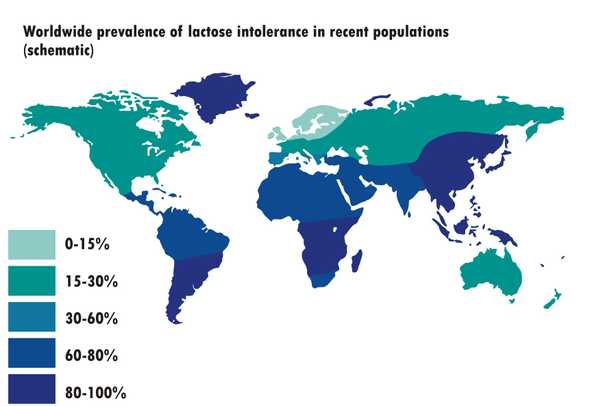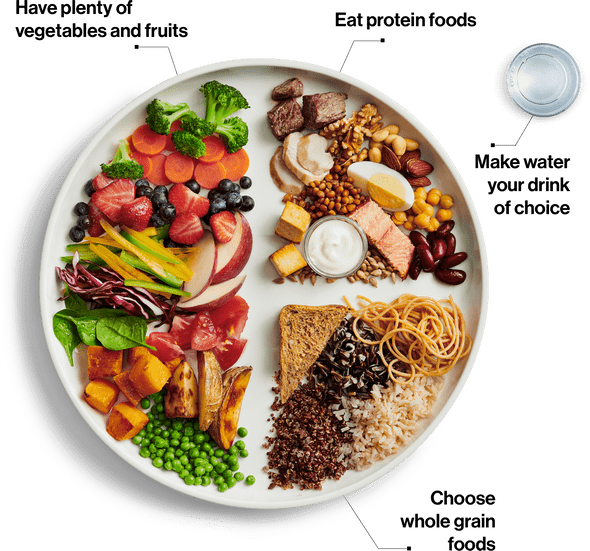We are taught from an early age to “drink our milk” for strong bones. While cow’s milk is a good source of calcium, I would like to encourage you to re-think whether this is the right calcium source for your children.
The United States, along with many other Western countries with strong dairy industries, promotes dairy as part of a healthy diet. Dairy (along with fruits, vegetables, grains and protein) is part of the USDA my plate. Canada, however, recommends water to drink.
Frank Oski, a well-renowned pediatrician (the Oski of Oski’s Pediatrics—a popular pediatrics textbook, former chair of Pediatrics at Johns Hopkins Medical School, and a founder and editor of the Contemporary Pediatrics journal) wrote a book in 1977 called Don’t Drink Your Milk. He also worked collaboratively with the famous Dr. Benjamin Spock and the Physicians Committee for Responsible Medicine to criticize the dairy industry.
Dr. Oski’s book illuminates several key points about cow’s milk consumption:
- Evolutionarily, we are not designed to drink milk past the age of natural weaning. In many countries around the world, mothers breastfeed until age 2 or older (as is recommended by the World Health Organization), and then children are weaned to a diet with plant-based foods and water. As a species, we have evolved to digest lactose due to our reliance on cattle farming. But for much of the world’s population, lactose intolerance is the norm rather than the exception.

-
Data suggest that consuming cow’s milk protein may increase a susceptible child’s risk of developing allergic diseases like eczema and asthma. A 2016 European study found that “In high risk infants, diet in infancy influences subsequent risk of atopy and asthma in young adulthood.”. Dr. Oski mentions a Canadian study from 1967 in which children were observed in clinical practice over a 10-year period. They found that cow’s milk sensitivity can cause “eczema, recurrent diarrhea and vomiting, persistent rhinorrhea and recurrent attacks of bronchiolitis and pneumonia in infants and children.”
The early recognition of cow’s milk sensitivity is important. Once it has been recognized, cow’s milk and dairy products will be avoided and only those foods which the child tolerates will be allowed. He will then be able to grow up relatively free from repeated gastrointestinal and respiratory illnesses. The parents are also relieved of much unnecessary expenditure on antibiotics and hospital care, while the physician will be spared the frustration of helping the patient to get better, only to see him relapse.
- Cow’s milk protein intolerance is quite common, and can manifest in infancy as colic, reflux, diarrhea, blood-flecked stools, and poor growth. As children grow, cow’s milk protein intolerance may play a role in recurrent ear infections, chronic constipation and abdominal pain. In my personal practice, I often suggest a dairy-free diet for breastfeeding mothers whose babies are struggling with excessive crying and/or reflux.
- Cow’s milk contributes to iron deficiency anemia because cow’s milk is low in iron, and it interferes with iron’s absorption in the intestine. Some children are also sensitive to cow’s milk, and in these children, drinking cow’s milk can induce bleeding in their intestines. If a child has iron deficiency anemia and cow’s milk allergy, taking an iron supplement will not treat the anemia until that child stops drinking cow’s milk.
- Oski also discusses the link between cow’s milk and diseased arteries (atherosclerosis) which can lead to heart disease. Oski discusses research done by a pathologist who reviewed the heart vessels of 1,500 children who died as a result from accidents showing that many children had diseased arteries. Interestingly, the clearest distinguishing factor between children with and without diseased arteries was the child’s early feeding history (breast milk or cow’s milk based formula). Children who had been breast fed were more likely to have normal arteries and children exposed to cow’s milk formula (or cow’s milk) were more likely to have diseased arteries.
The New England Journal of Medicine (a prestigious medical journal) recently published an article called Milk and Health written by Drs. Walter Willett and David Ludwig. In their February 2020 NEJM review article, they examine the risks and benefits of drinking cow’s milk and eating dairy products.
Many consider milk and other dairy products an essential dietary source of calcium for healthy bones. But Willett and Ludwig note that cow’s milk consumption and high levels of calcium intake do not decrease the rate of hip fractures. They also discuss the possible correlation between milk protein allergy and allergic diseases (eczema, asthma, allergies). In comparing plant-based versus dairy protein, plant-based diets lead to longer lives.
They conclude that:
If diet quality is low, especially for children in low-income environments, dairy foods can improve nutrition, whereas if diet quality is high, increased intake is unlikely to provide substantial benefits, and harms are possible.
To summarize, cow’s milk does provide a convenient source of calcium, protein, fat and vitamin D, and can be an important part of a child’s diet if the diet has lower overall nutritional value. However, it is not in any way necessary (since we can obtain these nutrients in other ways) and drinking cow’s milk may be harmful to our children’s health.
